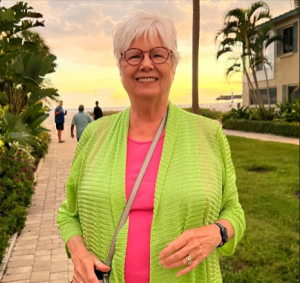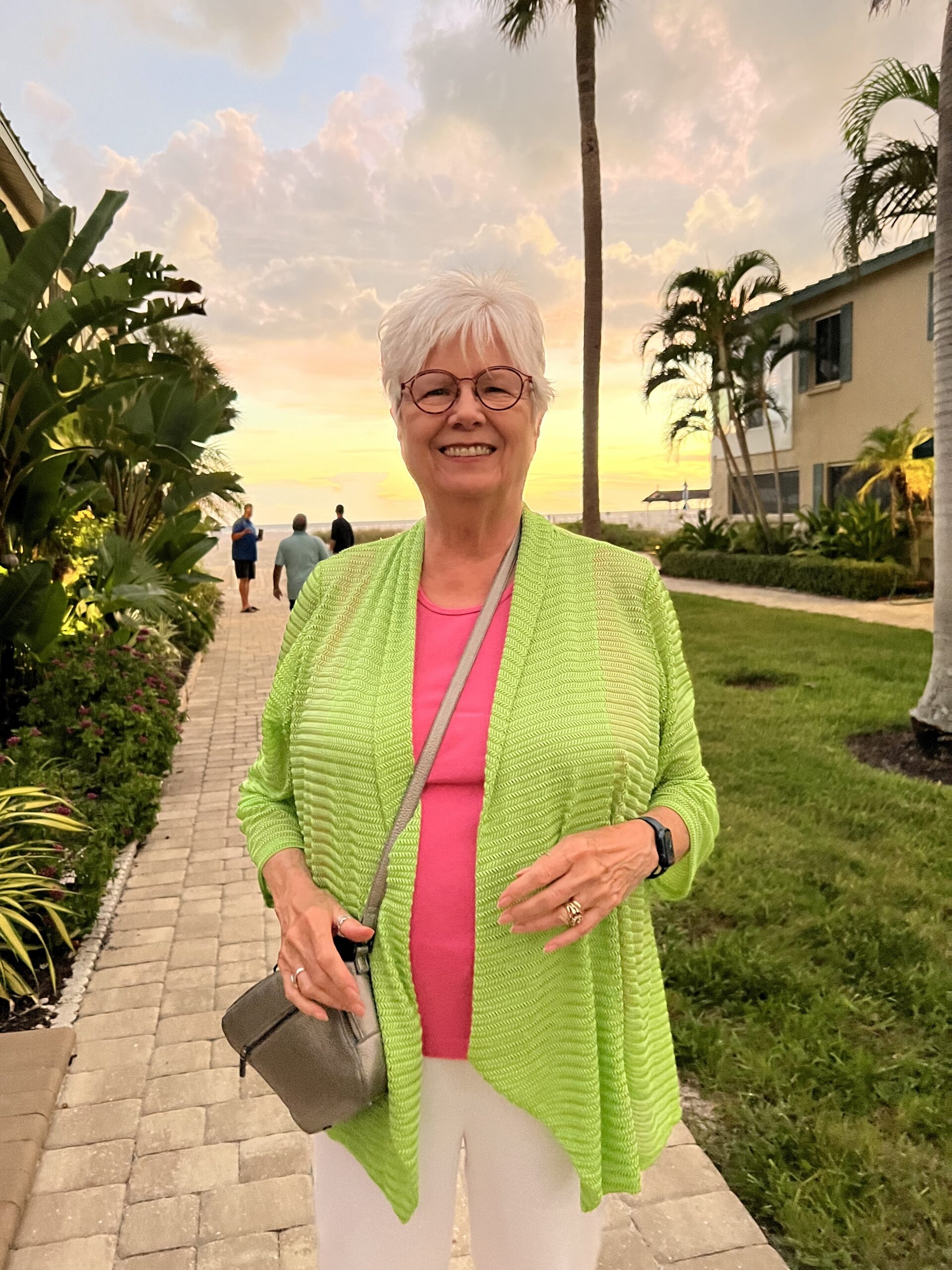
Carol Bailey Floyd, Certified WRAP Facilitator, author of the blog Celebrate Possibilities
My mother, Mildred Perry Bailey, had her first psychotic episode when I was 17 years old. She was taken away in an ambulance. I was terrified that I would never see her again. I was so scared that something had damaged her mind and that she would never be the same, or that she might even die. Luckily, she did come home, but she was different. She was more tired and depressed, and had less enthusiasm. I tried to do everything I could to help her. Our roles basically reversed; I essentially assumed the role of mothering her, and she was more childlike.
My brother Jeff has severe autism and could not live at home during his preschool years. All the years of upheaval before he was placed in a facility broke my mother’s heart. My Dad and I visited Jeff regularly, but often my mom couldn’t join us because it upset her too much.
I am no psychologist, but in looking back, I feel that my mom was a victim of what I call the “Betty Crocker Syndrome.” She kept the house clean and meals on the table—those were her main activities.
Mom lived to please my dad. Our church was a bit of a social outlet for her, but then my dad lost his faith because God didn’t “fix” my brother Jeff, so there was no more church. My mom had only one friend, whom she saw rarely. She smoked, read a lot, and did crossword puzzles.
My mom had an IQ of 175, but it never seemed to be of any benefit to her. One time I complimented her on reading so much, but she responded by saying that sometimes that was not a good thing. I think reading was a way that she hid from the world but could also vicariously be part of other surroundings and adventures.
For many years, my mom had a psychotic episode every Christmas Eve (my birthday) or Christmas Day. Our family would be at a loss about helping her.
After a long time, her psychiatrist solved that problem by medicating her so much that she was very depressed most of the time. He did not encourage a counselor for her. Mom didn’t want to go to one because she was afraid they would make her review her past. I never ever heard my mom say one word about her childhood, which led me to believe that it was awful.
My mom and dad divorced after 25 years of marriage. Episode after episode wore my dad down, but he told me in his older years that he regretted not staying with her.
I told you some of my mother’s story because I know that if my mother could have developed a WRAP, our family wouldn’t have been so helpless. She might have been able to coordinate a much happier and worthwhile life. Unfortunately, the last part of her life was filled with daily depression. She died in 1987 of a stroke at 72 years old.
Just before my mom died, we were sitting in the back seat of my sister Barbra’s car. I had my arm around her. She looked up at me and said, “You are my guardian angel. You know just when I need you, and you are always there.” Those words set me free from all the guilt and regrets about not being able to make her life happier.
If my mom would have had a WRAP, all of us who loved her could have reached out in more meaningful ways when she needed us. She might not have been so sad and depressed in the last years of her life.
I have had a WRAP since 2002, and it has dramatically changed my life for the better. Every person in my family has a copy of my WRAP, so they know how to help me when things get discombobulated.
Until I developed my WRAP, my family had no idea what to do when things were getting way too unmanageable. I averaged a breakdown about every 10 years.
Now we use the various parts of WRAP to fine tune my life. I am so relieved and happy that I broke the chain of misery that had become my mom’s way of living. I still have occasional down times or I get too speeded up. Yet I feel protected by my WRAP and my supporters who have my back. I feel safe and comforted when my WRAP is in action. I am no longer scared that I might follow in my mom’s footsteps.
WRAP is how I live my life on a daily basis. I collect Wellness Tools, which are about 90 percent fun and also very effective. I even have a blog where I have collected fun things to do for years.
I have 870 fun things to do itemized on my blog. I find it to be amazing that if I experience Stressors or Early Warning Signs, the first thing I need to do is find an appealing Wellness Tool or Action Plan and do it. I have a happy life filled with family, friends, and lots of interesting activities. WRAP is my framework, and I am very grateful for it every single day!
Related Resources
- Wellness Recovery Action Plan, Updated Edition
- WRAP Workbook
- Building Your Wellness Toolbox with Mary Ellen Copeland (Audio Download)
- WRAP Plus

Carol Bailey Floyd is a Retired Advanced Level WRAP Facilitator and Former Director of Programs, Mental Health Recovery and WRAP






